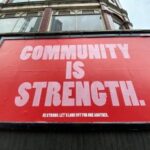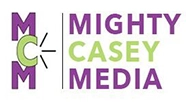The firehose of amazeballs ideas and connections that was Stanford MedicineX is now over two weeks back in my rear-view mirror. That does not mean that my head has not been on fire ever since, chewing on all the data that got packed into my cranium in those three days. If you want to read a recap of the joyful noise that was those days, it’s over on MightyCasey.com.
A forest fire between my ears has flared up with this thought: all the “big idea” thinking that happens when smart people gather to talk the future of healthcare is terrific. How can that be translated, today, into actual care improvement for the average human? Not just ePatients, but just-plain-folks? How can we start little centers of excellence in a free clinic for undocumented workers in the South Bronx, or in a village in AIDS-ravaged sub-Saharan Africa?
Is there an app for THAT?

Image credit: HuffingtonPost.com
I often feel myself at the crossroads of Possible and Are You F***ing Nuts. In other words, I dream of smartphone apps that could help a little boy in Ghana avoid getting malaria. I could lose an hour wondering how an app might help a little girl in Pakistan avoid a forced marriage at 12. As I type this, I’m thinking of how the kids in the public housing projects of the small city where I live could really use some how-to-manage-your-healthcare apps they’d be able to relate to. And the smartphones to go with them, of course.
Is there an app for THAT?
The grass, and its roots, are where we all stand. Healthcare, like charity, needs to begin at home. How do we help that happen? How do we empower children, and their parents, to understand how to interact with the healthcare system when so many of them are overwhelmed by just ensuring another 24 hours of survival?
Is there an app for THAT?
Here’s what I would LOVE to see at MedX 2014 (at which I firmly intend to be in attendance): real-world, right-now ideas for putting empowerment tools in the hands of not only the privileged, and the connected, but also into the hands of children across the globe. They’re more than our future … they’re our only hope.



